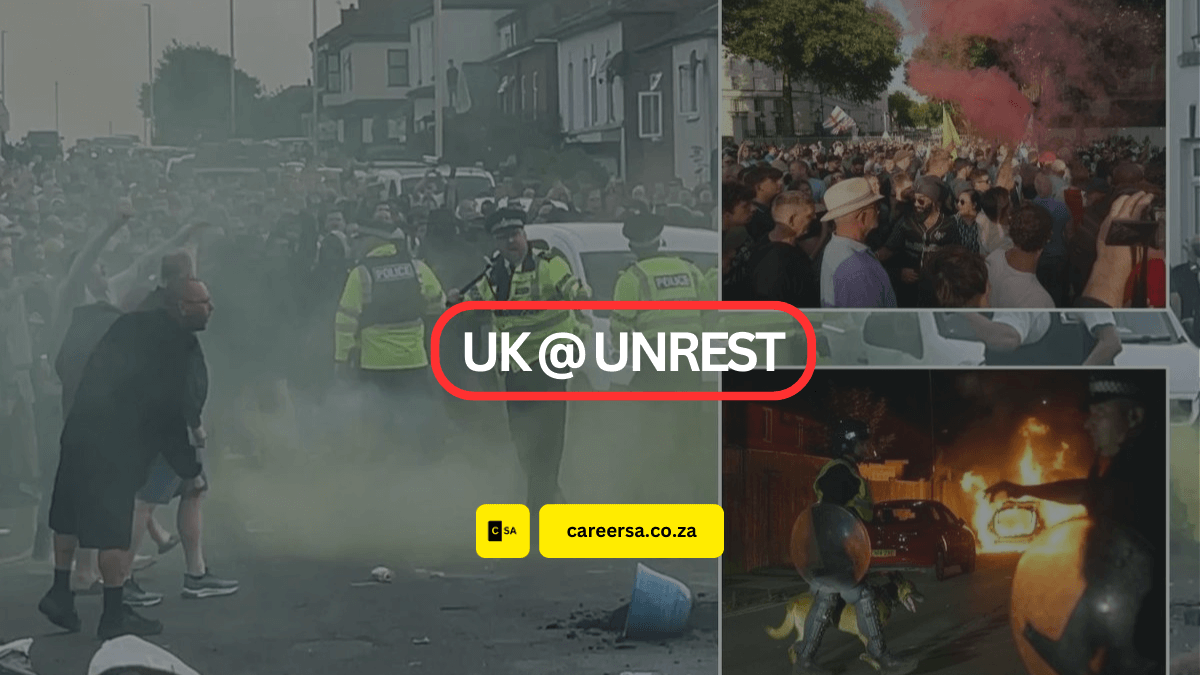UK Unrests: Looting Encouraged!

UK Unrests Deep Dive
The United Kingdom is currently facing a wave of UK unrests, with tensions escalating in various parts of the country. From protests sparked by political decisions to civil disruptions driven by economic concerns, the situation is rapidly evolving. This article provides real-time updates on the UK unrests, analyzing the causes, key events, and potential implications for the nation’s future. Stay informed as we delve into the heart of these conflicts, uncovering the voices and movements shaping the current state of the UK.
The recent unrest in the UK has shocked the nation, revealing deep-seated tensions and a troubling trend of looting that has emerged amidst protests. Following a tragic incident in Southport that left three young girls dead, protests erupted across various cities, spiraling into violent riots and widespread looting. This article explores the circumstances surrounding these events, the motivations behind the unrest, and the implications for society.
When did these unrests began
According to the search results, the recent unrest in the UK began around 1-2 months ago, following a tragic incident in Southport where three young girls were stabbed to death at a Taylor Swift-themed dance class. The unrest was sparked by false narratives and misinformation spreading on social media about the perpetrator’s identity, which fueled anger and provided a pretext for far-right groups to incite violence through protests that escalated into riots and widespread looting across various cities.
Background of the UK Unrests
The unrest was ignited by the horrific stabbings at a Taylor Swift-themed dance class in Southport, which led to public mourning and outrage. However, false narratives quickly spread, particularly on social media, suggesting that the perpetrator was a migrant. This misinformation fueled anger and provided a rallying point for far-right groups, who seized the opportunity to incite violence and chaos in the streets.
The Role of Far-Right Groups
Far-right organizations have been linked to the recent riots, with many participants reportedly motivated by anti-immigrant sentiments. Demonstrations turned violent as these groups clashed with police and counter-protesters. In Sunderland, for example, rioters set fire to a police station and targeted a mosque, chanting Islamophobic slurs while engaging in violent confrontations with law enforcement. The presence of families and young children among the rioters highlighted the troubling normalization of violence and disorder in the context of political protests.
Looting and Criminal Activity
As protests escalated, so did incidents of looting. In cities like Manchester and Hull, groups of individuals took advantage of the chaos to ransack shops, stealing alcohol, shoes, and electronics. Videos surfaced showing looters exiting a Sainsbury’s with arms full of wine, while others encouraged the chaos by shouting phrases like “Go get the beers!” This blatant disregard for law and order raises questions about the motivations of those involved and the societal factors contributing to such behavior.
Community Response and Cleanup Efforts
In the aftermath of the riots, local communities began to mobilize for cleanup efforts, demonstrating resilience in the face of adversity. Volunteers in Sunderland worked to clear debris and restore order, showcasing a stark contrast to the violence that had unfolded just hours earlier. Community leaders condemned the actions of the rioters, emphasizing that such behavior does not reflect the values of their neighborhoods.
Government and Law Enforcement Reactions
In response to the escalating violence, Prime Minister Sir Keir Starmer condemned the actions of the rioters, labeling them as “far-right thuggery.” He announced a coordinated national response to restore order, linking police forces across the country to better manage protests. The government has also faced criticism for its handling of the situation, with calls for more proactive measures to prevent the spread of misinformation and the organization of violent protests.
The Impact of Misinformation
The role of social media in exacerbating the unrest cannot be understated. False claims about the perpetrator of the Southport stabbings fueled anger and provided a pretext for violence. The rapid spread of misinformation has highlighted the need for greater accountability among social media platforms and a more robust response from authorities to combat harmful narratives that incite violence.
Looking Ahead
As the UK unrests grapples with the aftermath of these riots, it faces critical questions about social cohesion, the influence of far-right ideologies, and the effectiveness of law enforcement. The potential for further unrest looms, particularly as more protests are planned in the coming days. The government must address the underlying issues driving these tensions, including economic inequality, social division, and the rise of extremist ideologies.
The Look Up
The recent UK unrests serves as a stark reminder of the fragility of social order in the face of tragedy and misinformation. The shocking encouragement of looting amidst protests reveals a troubling trend that must be addressed to prevent future violence. As communities work to heal and restore order, it is essential for leaders to foster dialogue, promote understanding, and combat the narratives that divide society. Only through collective efforts can the UK hope to navigate these turbulent times and build a more inclusive and resilient future.

UK Unrests Deep Dive
When did this start?
The unrests started early June 2024, Following a tragic incident in Southport.
What sparked the riots and looting across the UK?
The unrest began after tragic stabbings in Southport, fueled by misinformation on social media about the perpetrator, which incited anger and violence from far-right groups.
How have communities responded to the unrest?
Prime Minister Sir Keir Starmer condemned the violence and announced a national response to restore order, linking police forces, while facing criticism for handling the unrest.
What is the government doing to address the situation?
Prime Minister Sir Keir Starmer condemned the violence and announced a national response to restore order, linking police forces, while facing criticism for handling the unrest.
What are the long-term implications of these riots for UK society?
The riots highlight deep social tensions, including economic inequality and extremism. Addressing these issues is crucial to prevent future unrest and promote social cohesion.
Who is responsible for the looting and criminal activity during the protests?
Individuals linked to far-right groups exploited the chaos to loot shops, stealing items like alcohol and electronics, showing a clear disregard for law and order.




